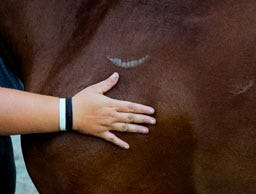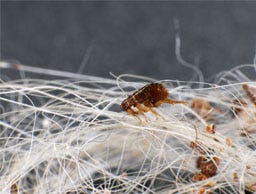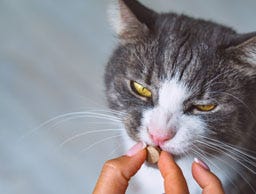How to Apply Spot-On Flea Treatments
When it comes to protecting your pet from parasites like fleas, prevention is always the best course of action. Many popular brands, such as Advantage flea treatments and Frontline flea treatments, offer their protection through topical spot-on treatments.
In this blog, we show you how to apply a topical spot-on flea treatment effectively so you can rest assured your pet is protected.
How Does Spot-On Flea Treatment Work?
The exact method of how a flea treatment works depends on the brand and its formula, but in most cases, once the spot-on treatment is applied, the liquid is absorbed into the skin. Here, the active ingredient will either spread beneath the layers of your pet’s skin and kill fleas directly on contact, or it will be absorbed into your pet’s bloodstream, killing fleas once they bite your pet’s skin.
Read the Medication Data Leaflet
When administering medication to your pet, always read the data leaflet. Not only can this help you to ensure you are administering the right treatment to your pet in the right dosage, but it also gives you information on any possible flea treatment side effects and what to do if your pet experiences them.
Also, it’s important to note that spot-on flea treatments for cats are not the same as spot-on flea treatments for dogs, and you should only administer a spot-on to the animal specified both in the data sheet and on the packaging.
How to Apply A Spot-on Flea Treatment
While reading the datasheet, you should have across a section giving you instructions on how to apply the treatment, but if you missed it, we’re going to go through the steps here as well.
1. Remove the medicine from the packaging
Spot-ons typically come in individually sealed blister packs, especially if the pack you bought contains more than one. If your pet has a tendency to make themself scarce at the sight or sound of a pipette being opened, do so in another room so as not to let them know.
2. Open your pipette
Each company will provide a predosed pipette for you, and their opening mechanics vary. Some may have a simple screw top, while others snap at the end. Open the pipette as instructed by the manufacturer and have it ready.
3. Hold your pet
When applying a spot-on treatment, it’s important you have your pet stay still to ensure a precise and effective application. Small animals such as cats, smaller dogs, rabbits and ferrets can easily be held in your lap while administering a spot-on. However, for larger breeds of dogs, try to have them sitting or lying down somewhere you can still hold them so they can’t easily get up and run away.
4. Pick the perfect spot
Spot–ons should be applied to a spot on your backs back where they can’t reach and lick it, typically at the very base of their neck or between their shoulder blades. For larger dogs, the treatment may need to be administered intermittently down your pet’s spine in multiple bursts towards the base of their tail to ensure maximum administration. This will be outlined in the datasheet. Sometimes for small animals, there may be too much liquid in the pipette for one spot application without any runoff, so applying in two spots (The base of the neck and between the shoulder blades) is recommended.
5. Part your pet’s fur
Spot-on flea treatments are only effective when applied directly to your pet’s skin, not the surrounding fur. This can be a little tricky with longer-haired species, but it’s important you make sure you can see your pet’s skin before attempting to apply a spot-on. Try wetting your fingers before parting their far to help slick them back easier so you can see their skin.
6. Squeeze the treatment out of the pipette
This will deposit the treatment on your pet’s skin, where it can be absorbed and begin working as it should.
7. Release your pet and immediately wash your hands
It can be tempting to want to rub the treatment in to ensure it’s being absorbed, but this is not necessary. Once you’ve applied the spot-on treatment, make sure you allow it to dry fully before stroking your pet, and if you have a multiple pet household, be sure to keep an eye out for group grooming as a pet licking a spot-on treatment can result in side effects like excessive salivation.
Can You Bathe Your Pet After Flea Treatments?
In order for your pet’s spot-on flea treatment to take effect, you need to wait before bathing your pet or allowing them to submerge themselves in water. The treatment should be fully absorbed within 48 hours, after which time it’s perfectly fine for you to bathe your pet without affecting the treatment.
How Often Do you Need to Apply Spot-on Flea Treatments to Cats and Dogs?
How long you need to wait between applying spot-on flea treatments will depend on the brand and strength of the treatment you are using. The typical waiting period is four weeks, after which time your pet will no longer be protected from fleas.
If your pet has an infestation of fleas and your first treatment doesn’t work, it’s important that you do not apply another treatment before the four-week mark, as it may lead to an overdose.
Spot-on flea treatments are designed to offer quick, easy and stress-free flea protection for both you and your pet. If you’re looking for a suitable treatment for your pet, you can browse our full range of flea treatments for cats or dog flea treatments, or get in touch with us today, and a member of our team will be happy to help.
































